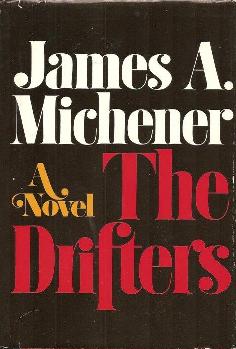
The Tale of the Body Thief is a vampire novel novel by American writer Anne Rice, the fourth in her The Vampire Chronicles series, following The Queen of the Damned (1988). Published in 1992, it continues the adventures of Lestat, specifically his efforts to regain his lost humanity during the late 20th century. Chapters from the book appeared in the October 1992 issue of Playboy.

Jack Dawkins, better known as the Artful Dodger, is a character in Charles Dickens's 1838 novel Oliver Twist. The Dodger is a pickpocket and his nickname refers to his skill and cunning in that occupation. In the novel, he is the leader of the gang of child criminals on the streets of London trained and overseen by the elderly Fagin. The term has become an idiom describing a person who engages in skillful deception.

The Stand is a post-apocalyptic dark fantasy novel written by American author Stephen King and first published in 1978 by Doubleday. The plot centers on a deadly pandemic of weaponized influenza and its aftermath, in which the few surviving humans gather into factions that are each led by a personification of either good or evil and seem fated to clash with each other. King started writing the story in February 1975, seeking to create an epic in the spirit of The Lord of the Rings. The book was difficult for him to write because of the large number of characters and storylines.

The Harp in the South is the debut novel by New Zealand-born Australian author Ruth Park. Published in 1948, it portrays the life of a Catholic Irish Australian family living in the Sydney suburb of Surry Hills, which was at that time an inner city slum.

The Drifters is a novel by Pulitzer Prize-winning author James A. Michener, published in 1971 by Random House. The novel follows six young characters from diverse backgrounds and various countries as their paths meet and they travel together through parts of Spain, Portugal, Morocco and Mozambique. The story is told from the perspective of the narrator, George Fairbanks, who is an investment analyst for the fictional company World Mutual Bank in Switzerland. Mr. Fairbanks is connected with nearly every character in some way, and they all seem to open up to him throughout the novel in one way or another.

Irwin Shaw was an American playwright, screenwriter, novelist, and short-story author whose written works have sold more than 14 million copies. He is best known for two of his novels: The Young Lions (1948), about the fate of three soldiers during World War II, which was made into a film of the same name starring Marlon Brando and Montgomery Clift, and Rich Man, Poor Man (1970), about the fate of two brothers and a sister in the post-World War II decades, which in 1976 was made into a popular miniseries starring Peter Strauss, Nick Nolte, and Susan Blakely.

The Line of Beauty is a 2004 Man Booker Prize-winning novel by Alan Hollinghurst.

Axel Buchardt Jensen was a Norwegian author. From 1957 until 2002, he published both fiction and non-fiction texts which include novels, poems, essays, a biography, and manuscripts for cartoons and animated films.

Little Women is a 1978 American television miniseries directed by David Lowell Rich and written by Suzanne Clauser based on the 1868–69 two-volume novel of the same name by Louisa May Alcott. The cast includes Susan Dey, Meredith Baxter Birney, Ann Dusenberry, Eve Plumb, Dorothy McGuire, William Schallert, Greer Garson, Robert Young, Richard Gilliland, William Shatner and John de Lancie.

Stay Close is a British mystery drama miniseries based on the 2012 Harlan Coben novel of the same title, produced by Red Production Company for Netflix. The eight-episode series was released on 31 December 2021.

Beggarman, Thief is a 1977 novel written by Irwin Shaw. It was a sequel to his 1970 bestseller Rich Man, Poor Man and focuses on the surviving Jordache siblings, Gretchen and Rudolph; their deceased brother Thomas' teenage son Wesley Jordache; and Gretchen's adult son Billy Abbott.

William Mauldin "Bo" Hopkins was an American actor. He was known for playing supporting roles in several major studio films from 1969 to 1979, and he appeared in many television shows and TV movies.

Laughter in the Dark is a novel written by Vladimir Nabokov and serialised in Sovremennye zapiski in 1932.

Happy Land is a 1943 film directed by Irving Pichel and starring Don Ameche. A World War II home front drama, it was based on the 1943 novel of the same name by MacKinlay Kantor.
Fanny Hill is a BBC adaptation of John Cleland's controversial 1748 novel Fanny Hill, written by Andrew Davies and directed by James Hawes. This is the first television adaptation of the novel. Fanny Hill was broadcast in October 2007 on BBC Four in two episodes. Fanny Hill tells the story of a young country girl who is lured into prostitution in 18th-century London.

Daniel Anthony Torrance, also known as Doc, Danny and later Doctor Sleep, is a fictional character who first appears in the 1977 novel The Shining by Stephen King as a child with psychic powers called "the shining". His parents are father Jack Torrance and mother Wendy Torrance. The character was portrayed in the 1980 film adaptation The Shining by Danny Lloyd and by Courtland Mead in the 1997 television miniseries The Shining.
Rich Man, Poor Man is a 1976 American television miniseries based on the 1969 novel of the same name by Irwin Shaw that aired on ABC in one or two-hour episodes mostly on Monday nights over seven weeks, beginning February 1. It was produced by Universal Television and was the second time programming of this nature had been attempted. The first TV miniseries, QB VII, had aired — also on ABC — in 1974. These projects proved to be a critical and ratings success and were the forerunner for similar projects based on literary works, such as Roots and Shōgun. The miniseries stars Peter Strauss, Nick Nolte and Susan Blakely.

Death in Paradise is a crime novel by Robert B. Parker, the third in his Jesse Stone series. It was made into a film in 2006.

Hilal Nebahat Çehre is a Turkish actress, model, singer and beauty pageant titleholder who was crowned Miss Turkey 1960. She is best known for her protagonist roles as Firdevs Yöreoğlu on the Kanal D drama series Aşk-ı Memnu (2008–10) and as Hafsa Sultan on the series Muhteşem Yüzyıl (2011–12).

Kuzey Güney is a Turkish television drama series. The scenarists are Ece Yörenç and Melek Gençoğlu. The series stars Kıvanç Tatlıtuğ as Kuzey Tekinoğlu, a tough and rebellious son of an Istanbul baker, who comes back from prison four years after he confesses to a crime his brother, Güney, committed.


















